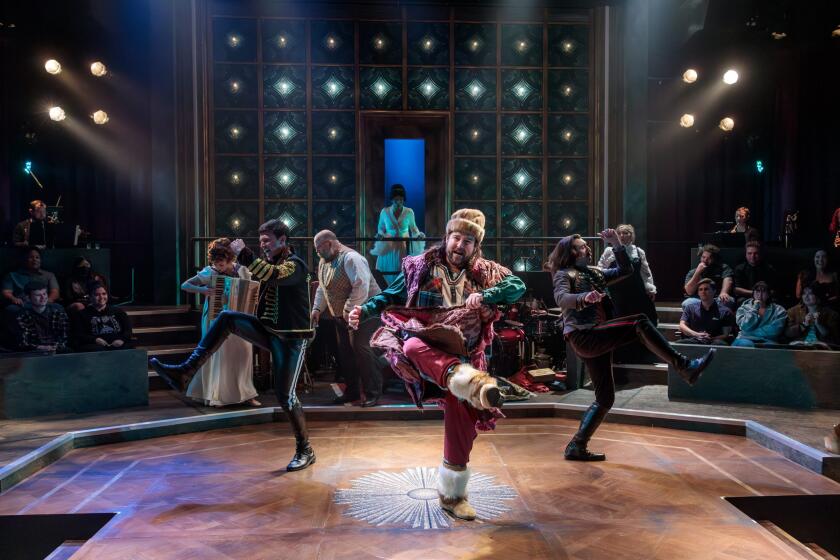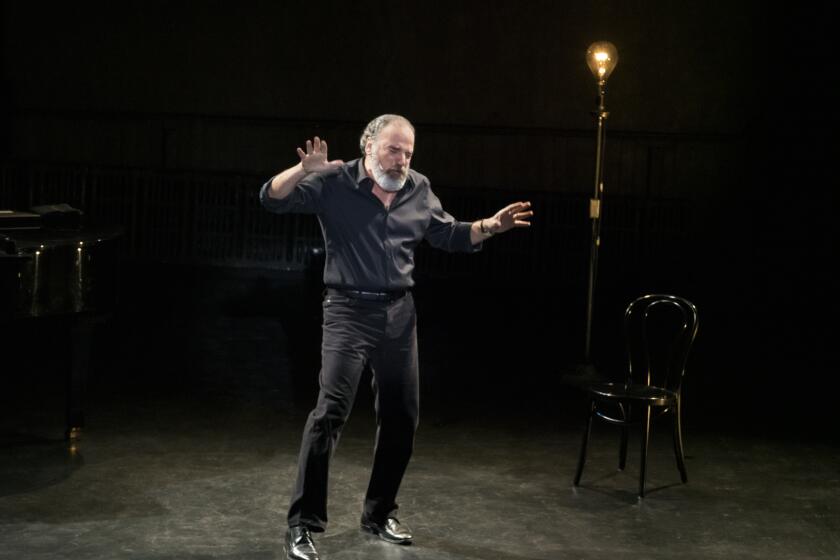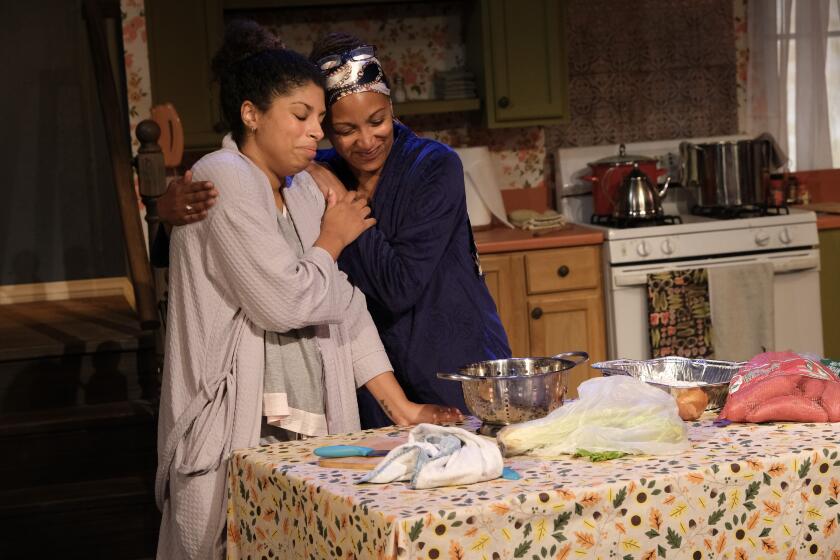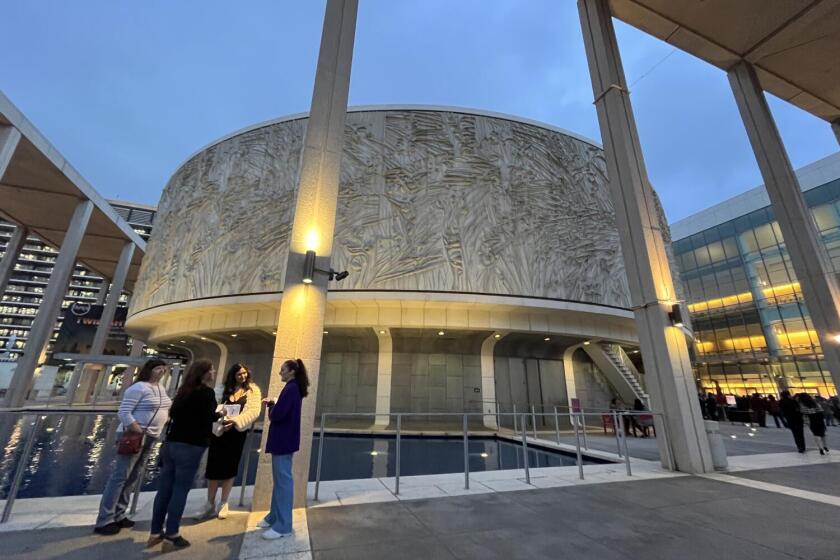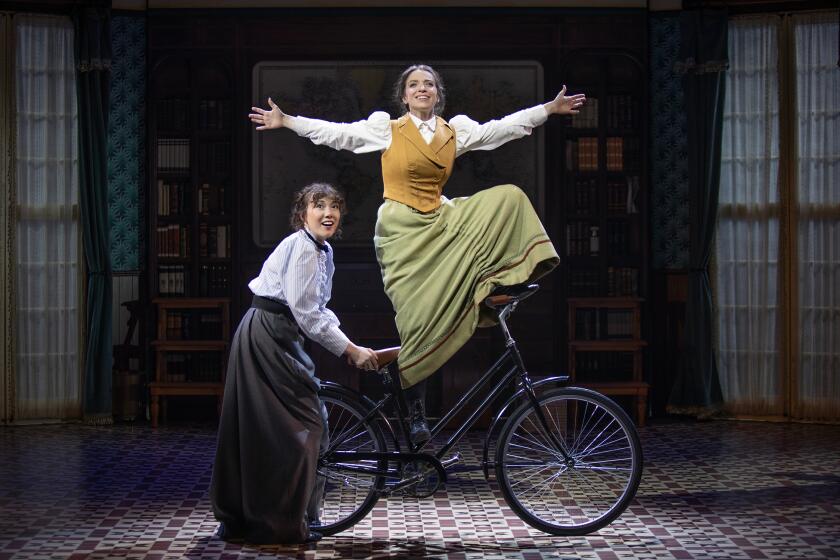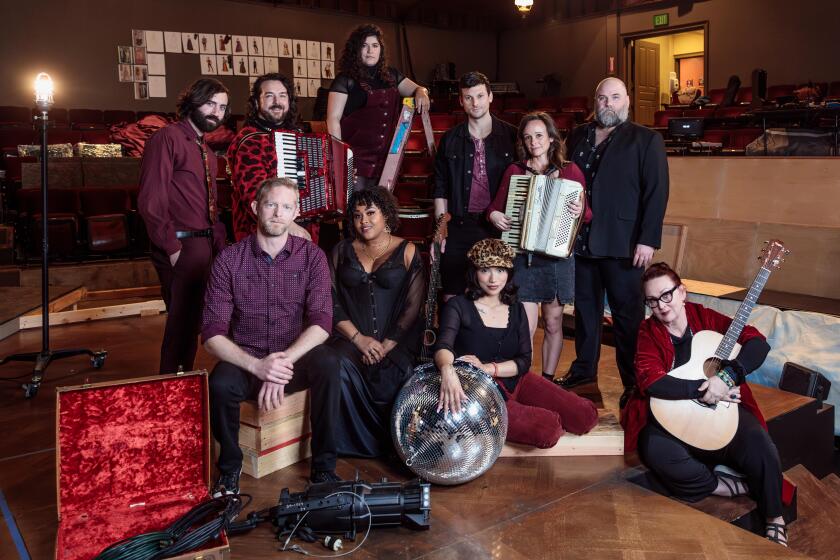Review: San Diego Opera’s ‘Cinderella’ has many hits, but one major miss
Once upon a time, there was an opera director. She took a libretto usually played for cheap laughs and found genuine pain inside it, and thoughtfully brought that out. She set her production in a different time and place than the libretto specified, but her choices enhanced the story and music instead of perplexing opera fans, and everyone went home happily ever after.
There’s one fairy tale I’d love to experience, but alas, they rarely come true in real life. Such was the case Saturday evening when San Diego Opera opened its season with Rossini’s “La Cenerentola” (billed as “Cinderella”). Its cast was strong overall, and under Gary Thor Wedow’s baton, the orchestra cheerfully sparkled with the best performance of this score in the company’s history.
However, Dan Potra’s clever sets and lovely costumes bizarrely placed the tale in Victorian England. Director Lindy Hume reduced the social status of Cinderella’s stepfather, Don Magnifico, from a landed Baron to the owner of a seedy sundries store. Scenes explaining Magnifico’s squandering of Cinderella’s inheritance were excised, along with his second act patter aria, “Sia qualunque delle figlie.”
San Diego Opera presents “Cinderella”
When: 7 p.m. 25 and 28. 2 p.m. Oct. 30.
Where: San Diego Civic Theatre, 1100 Third Ave., downtown.
Tickets: Start at $37
Phone: (619) 533-7000, (619) 232-7636
Online: sdopera.org
The title role was sung by mezzo-soprano Lauren McNeese, a gifted actress with a solid upper register and agile coloratura technique. What she lacked, however, was strength below middle C. Rossini composed the role for a commanding contralto; McNeese simply did not have the low notes for Cinderella.
The other six principals were well cast. David Portillo, as Ramiro, was a princely tenor with bright and supple tone. He was plaintive in the throes of love, formidable when threatening punishment, and hilarious in the duet “Zitto, zitto; piano, piano,” sneaking from tree to tree or crawling across the stage with his valet, Dandini.
Dandini was nimbly played by José Adán Pérez, a boffo buffa basso. There was firmness and suavity to his tone throughout his range, and he was one of the few people on stage able to generate laughter through demeanor as opposed to shtick.
Bass Stefano de Peppo captured the asinine pomposity of Don Magnifico, but the cruel aspects of his character were blunted. Some of this was the director’s fault for cutting some of his villainous scenes, but de Peppo could have summoned more terror for the mental abuse he heaps on Cinderella in Act I. His patter was nimble enough, but Pérez outmatched him in tonal weight.
Ashraf Sewailam once again proved a valuable contributor to San Diego Opera (remember his Leporello last year?). His Alidoro was underscored with gravity and a richness of tone, exemplified in his Act I solo promising Cinderella a change of fate.
The stepsisters Tisbe and Clorinda, respectively and capably sung by Alissa Anderson and Susannah Biller, were more goofy than mean, assigned head bobbing and high-fives.
The all-male chorus was in fine form, with crisp declamation, although their first scene in Act 2 was unduly ragged.
Those unfamiliar with Cinderella will likely find it a well-sung, silly trifle, and it’s the only offering from San Diego Opera this season that can safely be recommended for children. Rossini fans may well wish that a fairy godmother had waved a wand over this production to grace it with the psychological depth that the composer wrote into his characters’ music, as well as a mezzo who can belt out those low notes.
Hertzog is a freelance writer.
Get U-T Arts & Culture on Thursdays
A San Diego insider’s look at what talented artists are bringing to the stage, screen, galleries and more.
You may occasionally receive promotional content from the San Diego Union-Tribune.
